How do you defend a Defender? It’s a tricky, twisty riddle of a question. It’s a thorny issue, a prickly problem — and the very dilemma Land Rover faced when it relaunched its iconic 4X4 back in 2019.
Because the purists weren’t happy. “That’s not a Defender!”, came the cries from the comments section. “Bring back the proper one!” demanded other diehards. And the criticism didn’t end there. People took issue with almost everything about the remodelled motor, from its softer, more sculpted shape to its slightly reduced ground clearance. A Defender, the masses argued, is meant to be a utilitarian car. This new model, they claimed, was not the rough-and-ready, rugged runaround they had known, loved — and now lost.
But we, even then, suspected otherwise. Here at Gentleman’s Journal, we’ve driven our fair share of Land Rovers. And, whilst you clearly can’t hose down or sluice out the new Defender (think of the Alcantara!), we were almost completely convinced that — mechanically, at least — this new model would outstrip the practicality of its predecessor.
That’s why we borrowed a road-spec Defender from the good people at Land Rover, and headed to the Scottish Highlands. Because, while the cynics and sticklers have taken every opportunity to shoot down the ‘sanitised’ new model, we wanted to prove that it’s still up to the off-road job. So how would we defend a Defender? By careening it around the Cairngorms, that’s how.

This is a Defender 90 P300 X Dynamic SE — a model marketed specifically as an ‘on-road’ version of the car. And it handled the tarmac tremendously. From Inverness to the Isle of Skye, it didn’t miss a beat on the A-roads; and felt considerably safer at speed than its predecessor. In fact, much of the bodywork developments that rankled the traditionalists were implemented to increase crumple zones. And what’re a couple of curves if they get you a five-star Euro NCAP safety rating?
But it wasn’t A-roads we were interested in. Rather, we set out for glens, glades and gravel trails. We wanted the craggy coastlines of Scotland, the flooded fields — uncharted patches of tricky terrain. And we found them. Whether it was up steep banks, down dirt tracks or across heather moorland, we threw everything we could find at the Defender, and it took almost every terrain in its four-wheel-drive stride.
Also, despite its slightly lower ride — 23mm less ground clearance than the previous model — the new Defender never felt like it was shying away from the job at hand. Whether it was water, rocks, ditches or patches of peat bog, the road-spec model tackled every off-road challenge we threw under its 20-inch alloys. And that set of practical, powerful Pirellis didn’t hurt, either.
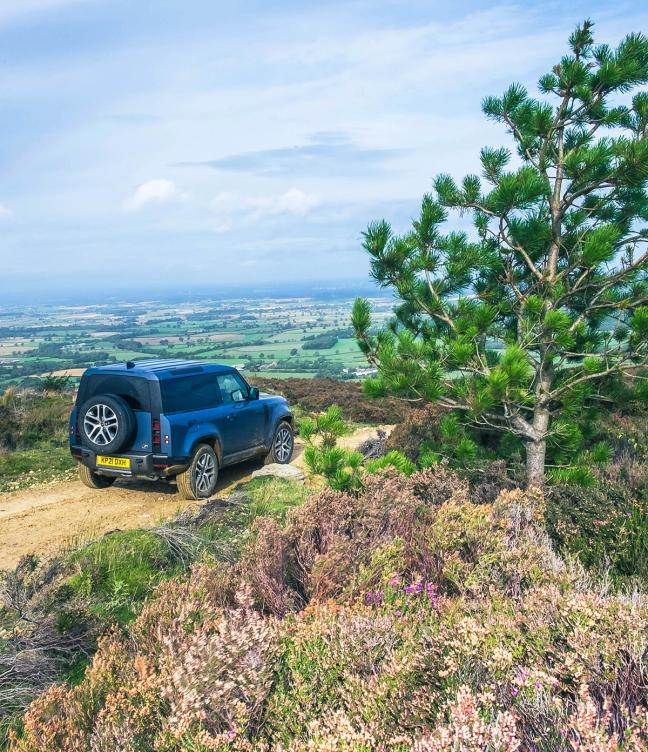
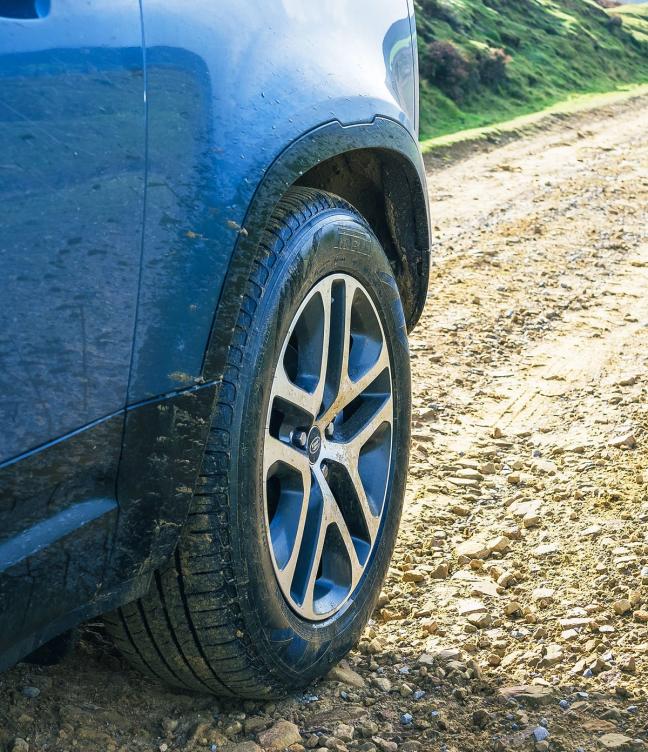
Of course, the wheels were only half the help. While your choice of tyres and size of wheels may have made all the difference in an old Defender, most of the new model’s off-road credentials can be found wired into the car’s computer. Standard spec on a new Defender will get you ‘Terrain Response’ and ‘Wade Sensing’, with this X-Spec also throwing an ‘Electronic Active Differential’, ‘Configurable Terrain Response’ and ‘Air Suspension with Adaptive Dynamics’ into the cross-country mix.
In fact, the entire electronics system is invaluably helpful. It’s another bone of contention among the purists, but there’s a good reason the new Defender comes laden with gizmos and gadgets. The old guard may enjoy the simple, easy-to-fix transparency of mid-century engineering, but that fact is that these modern electronic aids make driving both easier and safer. Of course, with more tech-reliant features, there’s also more that could potentially go wrong — but the pros here undeniably outweigh the cons.
It’s got a ‘360-Degree Parking Aid’, ‘Power Fold Door Mirrors’ and ‘Traffic Sign Recognition’. There’s ‘Lane Keep Assist’, ‘Cruise Control’, ‘Auto-Dimming Lights’ and a navigation system so ergonomic and reliable that it kept us on track miles after our phones lost their last bars of signal. And, when you’re lost in the thick forest of Britain’s biggest National Park, that’s an advancement you’ll want.
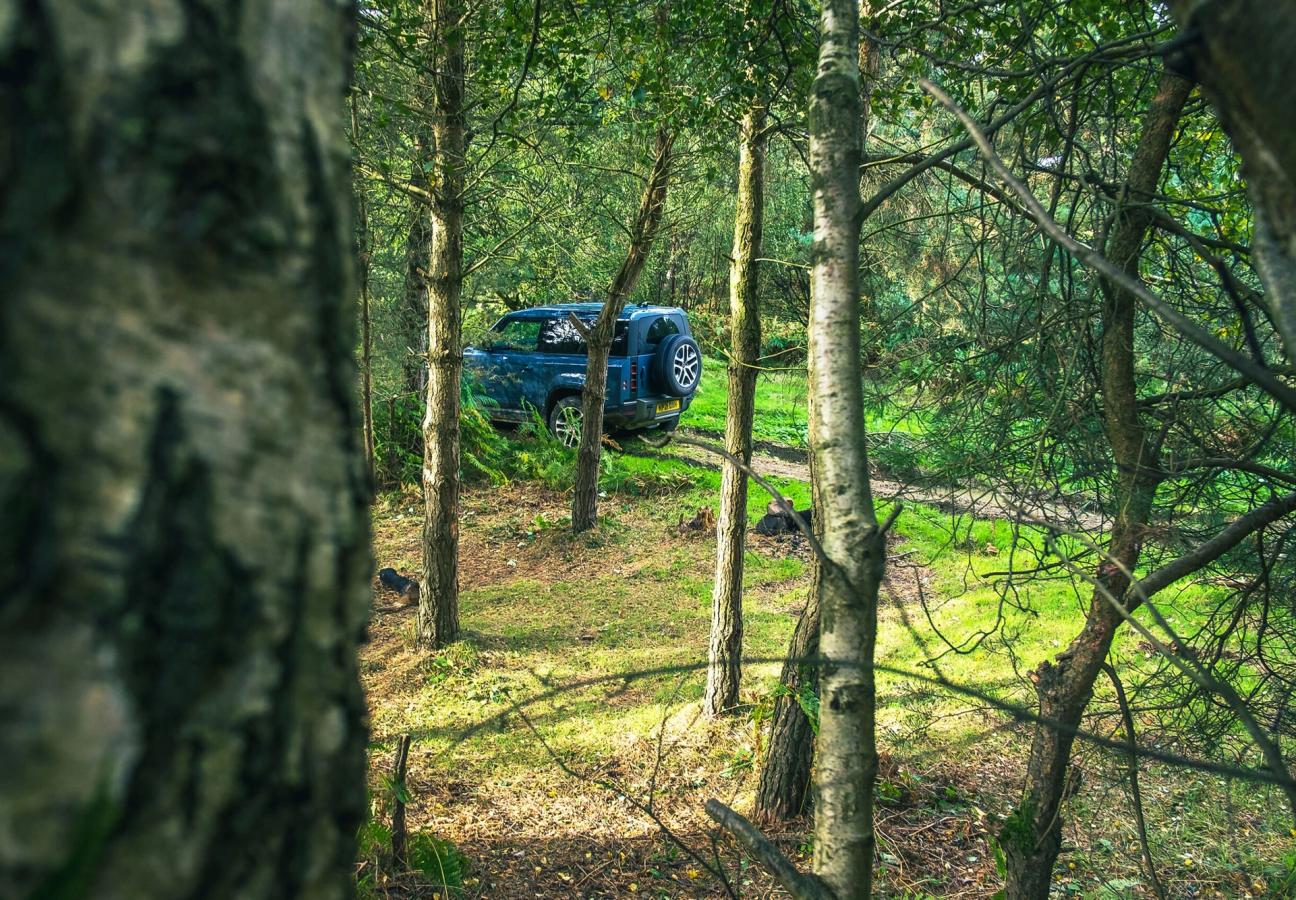
And, after a while, you won’t even notice these new driving aids. We certainly didn’t. This shows that the car’s most vocal critics have likely never sat behind the wheel of one for an extended period of time. Had they spent a while getting to grips with it, we’d wager they’d be a little less quick to judge. It’s as Marek Reichman, Chief Creative Officer of Aston Martin, told Gentleman’s Journal about the brand’s first 4X4, the luxury DBX: to begin with, it may not feel like an Aston Martin. But in time…
It’s a similar story here. The longer you sit in the cabin, and the further you explore and adventure with it, the more this new Defender feels like an old Defender. Pull up, as we did, to the stunning boutique 5-star hotel The Fife Arms in Braemar, and you won’t feel out of place among the Porsche Macans and Bentley Bentaygas. But, equally, you could also trek and trudge to your hiking heart’s content — and still feel fine muddying it up. Not rugged enough to be a Defender? It may not have the rough edges of the previous model, but it’s still plenty tough enough.
That tyre on the back, for example, isn’t just for show. Nor is the side-mounted ‘Gear Carrier’ seen on some models. In fact, there are over 170 accessories available to kit-out and tool-up the the new Defender. From scuff plates to mud flaps, it’s a Swiss army knife of an SUV. And, while it has undoubtedly levelled up the luxury, that could be said about almost every new model of every new car — and this still has nowhere near the trim level of a Range Rover, or even a new Discovery. So, if you’re still griping about the credibility of those chequer-plate bonnet strips, it’s time you got a grip.
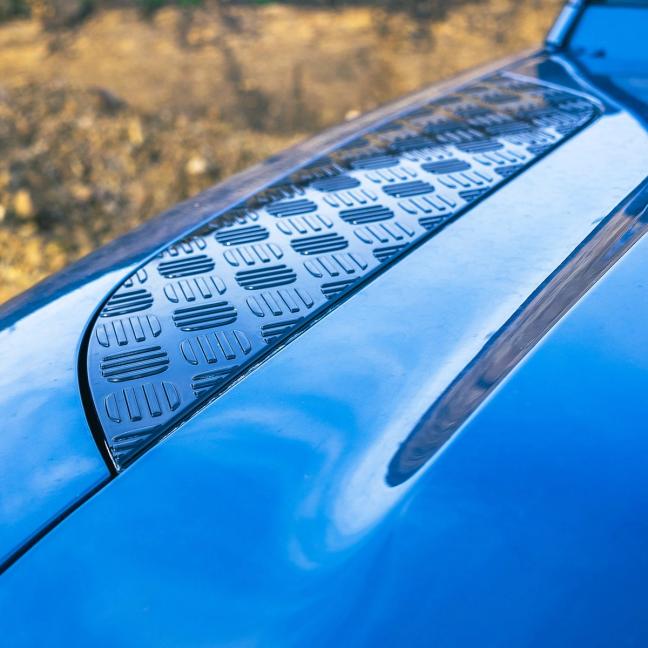
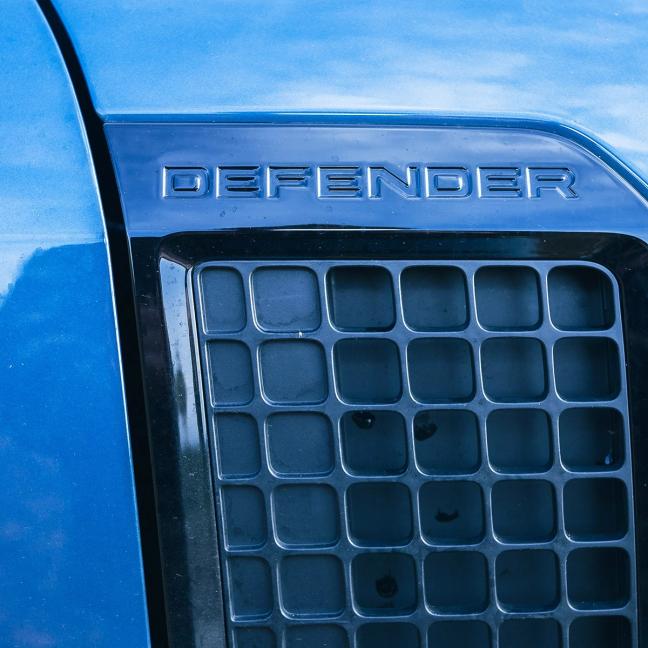

On the subject of ‘grip’, let’s return to our ultra-capable road-spec Defender. Because even this model, created for light off-roading at best, did a stellar job of the more serious stuff. It performed best when rolling down rough, rocky tracks; not quite roads, but not yet unforgiving, unpredictable fields and fells, either. This is where the new Defender should thrive; on the middle ground. And it’s testament to Gerry McGovern’s new design that the car can rumble down both rural roads and take a spin through the city while looking utterly at home in both.
Think about that for a moment. Because most cars, the old Defender included, would find that impossible. You can either look at home on the farm, or you can look like you were built for the city. The new Defender, somehow, has achieved both. And if most customers are buying a Defender because they want a car that can do it all, this new model — perhaps even more so than the last — is the epitome of that philosophy.
That’s not to say it’s perfect. It isn’t. The boot is far too small, and it’s a real chore trying to clamber into those back seats. The more practical, five-door Defender 110 is definitely worth the £5,000 price bump — especially if you’ve got a family.
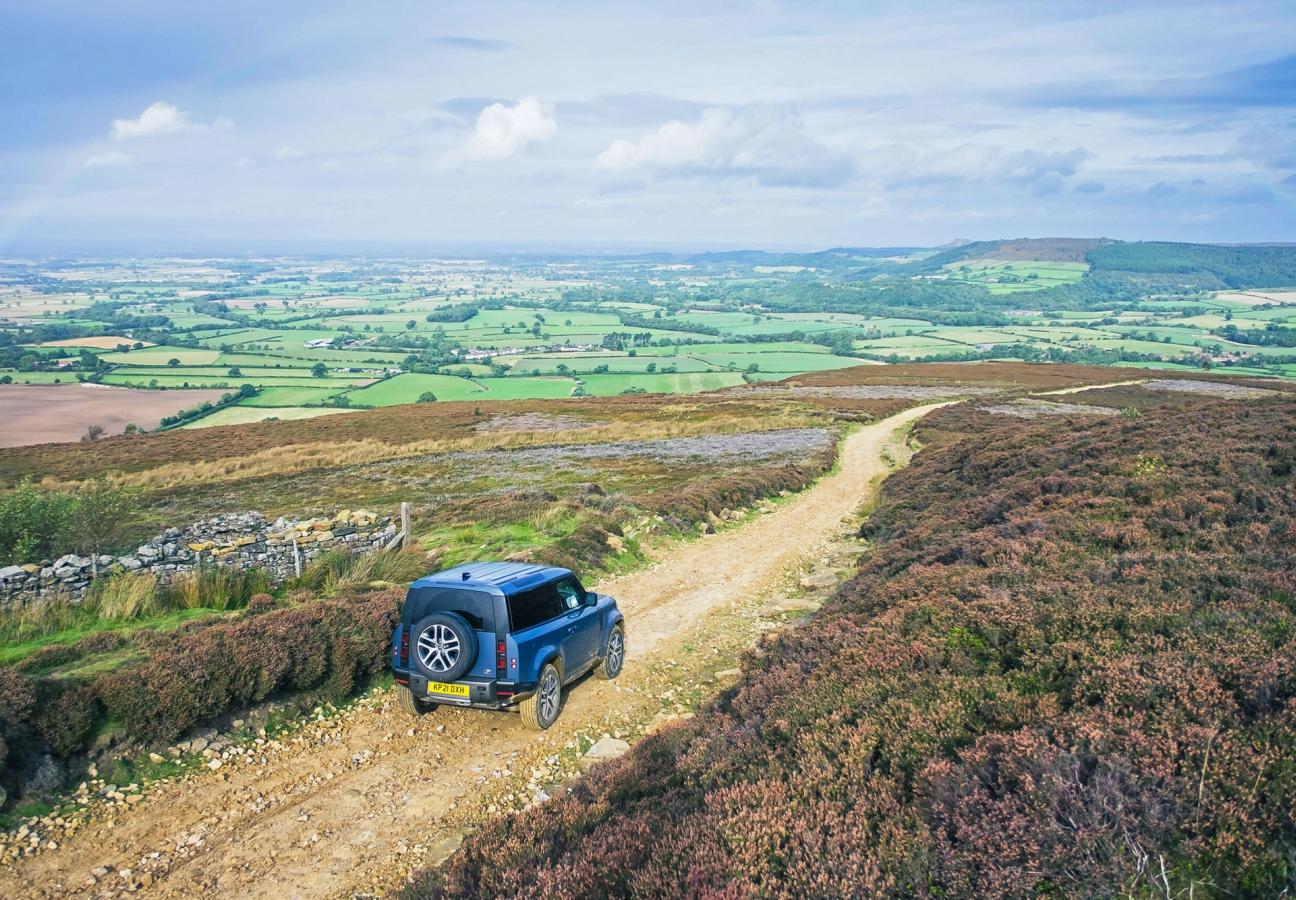
It all depends on what your Defender is for. But Land Rover, as we mentioned above, has an answer and an accessory for almost everything. There are more bells, whistles and wheelbases (a Defender 80 is expected in 2023) on offer here than you’ll ever really need. And, recently, stripped-back commercial and working versions were even unveiled by the British brand. (And, with rubber-lined load bays, you can even hose those ones out.)
So if this road-spec Land Rover Defender has proved its mettle, just think how capable those other purpose-built models will be. Because, while you may wince when you nick a gatepost in your new Defender, or think twice before letting your muddy collie jump onto back seat, those qualms and quibbles are only superficial. Beneath the bonnet, where things really matter, even this on-road Defender is an off-road expert.
Which returns us to our original problem; how do you defend a Defender? The answer; you don’t have to — because this hugely capable modern machine can fend for itself.
Want more SUV action? We took the Aston Martin DBX for a drive on the wild side…
Become a Gentleman’s Journal member. Find out more here.

Become a Gentleman’s Journal Member?
Like the Gentleman’s Journal? Why not join the Clubhouse, a special kind of private club where members receive offers and experiences from hand-picked, premium brands. You will also receive invites to exclusive events, the quarterly print magazine delivered directly to your door and your own membership card.


